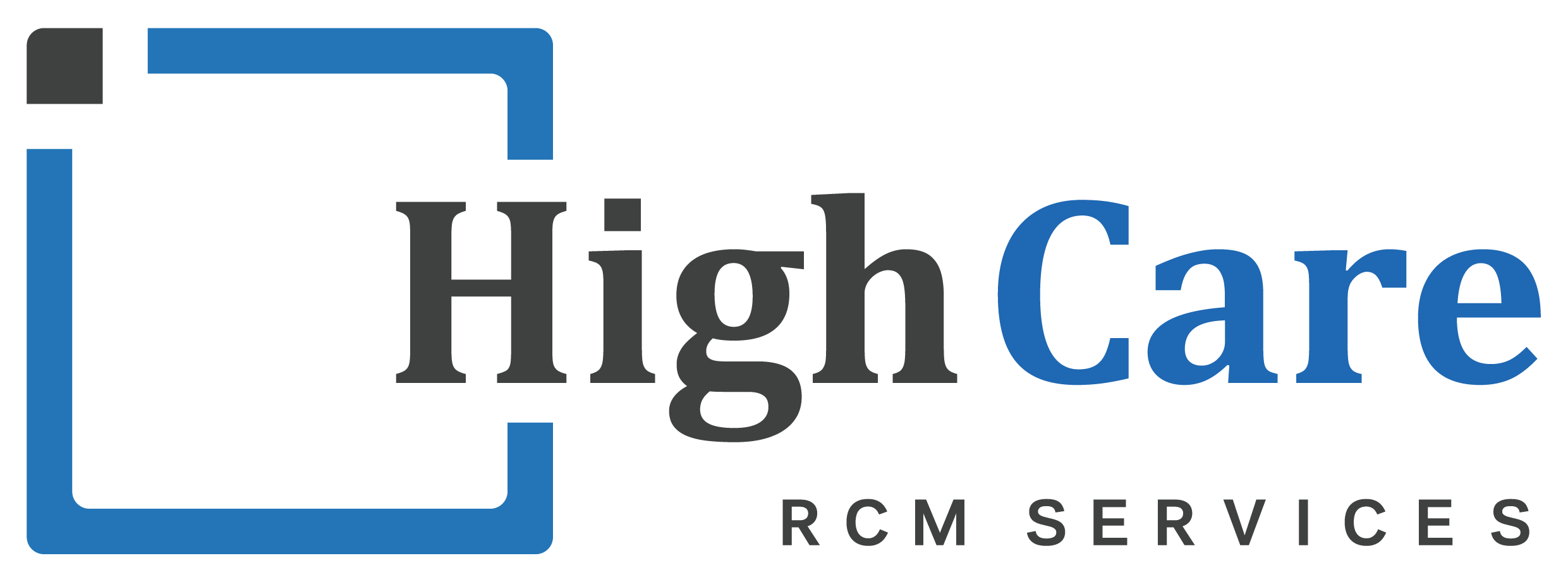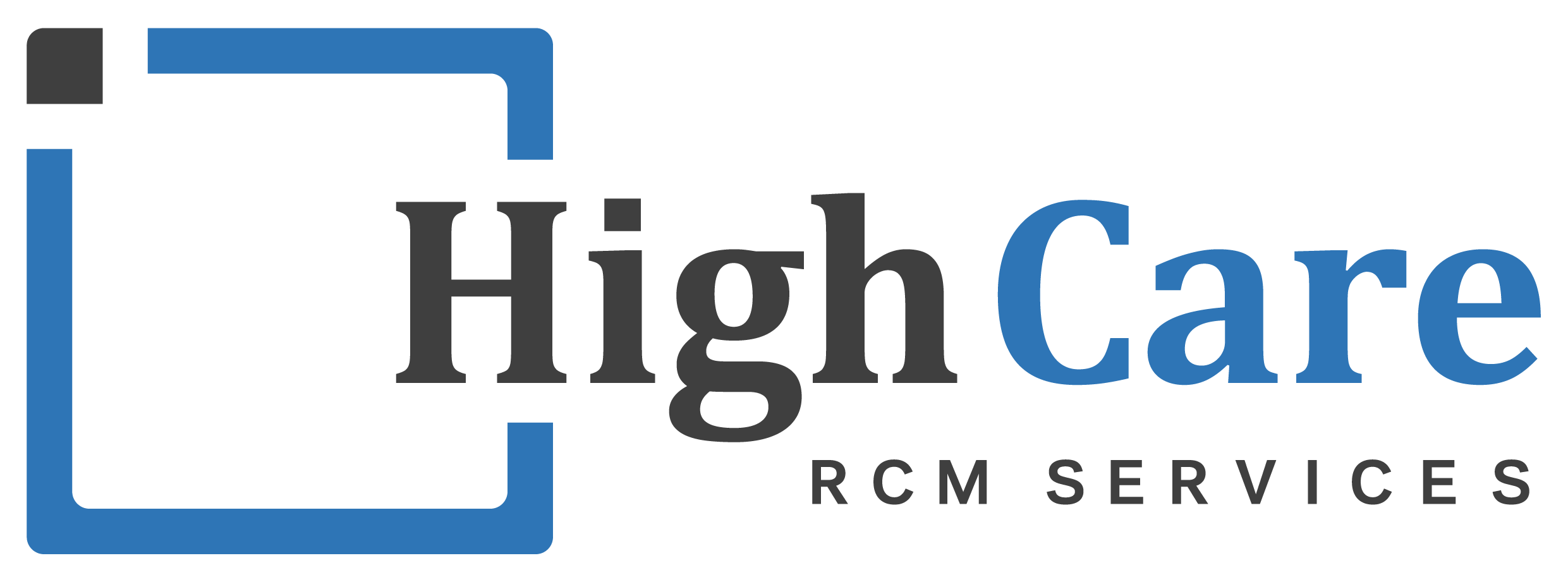- 14, Kathiresan Street, Pallipalayam corner, Kumarapalayam – 638183
The Common Challenges of Surgery Coding and How to Overcome Them
High Care RCM
Surgery coding is a critical aspect of healthcare billing and reimbursement, but it comes with its fair share of complexities and potential pitfalls. From coding errors to evolving regulations, healthcare providers face numerous challenges that can impact revenue and compliance.
In this article, we will explore these common challenges and provide actionable solutions to overcome them. By implementing best practices, such as meticulous documentation review, proper modifier usage, robust communication channels, and staying informed about coding guidelines, healthcare practices can optimize their surgery coding processes and ensure compliance and financial success.
Here are the common challenges faced in surgery coding and the solutions to overcome them,
Coding Errors
Coding errors for Current Procedural Terminology (CPT) in surgery coding can have significant consequences for healthcare practices and physicians alike. These errors can range from not thoroughly reviewing complete documentation to billing the incorrect units, misunderstanding the nuances of specific CPT codes, and not adhering to the latest coding guidelines. Such mistakes can lead to denied claims and delayed payments. The most common coding errors occurring in surgery coding are:

- Lack of specificity in code such as site, laterality, or methods used for procedure
- Coding from operative note headers only instead of the entire procedure details.
- Unbundling the procedures
- Failure to code multiple procedures when appropriate
- Missing charges for multiple procedures
- Coding with unsupported medical necessity
- Not reporting imaging guidance when performed
Surgery coding errors can lead to significant loss of revenue and compliance issues for healthcare providers.
Solution: Meticulous Review of Documentation
Coders should meticulously review all relevant documentation, including operative notes, progress notes, and other records, to identify the full scope of the surgical procedures. Ensure coders are well-versed in coding guidelines and receive regular training and coding assessment to ensure accurate coding and prevent errors.
Incorrect use of Modifiers:
The challenges related to modifiers in surgery coding often revolve around their improper application, leading to claim denials, delayed payments, and compliance issues. Most commonly using surgery modifiers are Surgeon modifiers (62, 80), Same day surgical procedure modifiers (22, 50, 51, and 59) and global surgery modifiers (24, 58, 78, and 79).
Coders may mistakenly append modifiers to procedures that do not meet the criteria for their use. For example, misusing Modifier 24 for unrelated evaluation and management services during the global period of a surgical procedure can result in confusion and incorrect billing. Similarly, incorrect usage of Modifier 59 to identify distinct procedural services may lead to claim rejections and audit risks.
Solution: Educating Coders and Medical Professionals
Educate coders and medical professionals about specific criteria, emphasize clear and accurate documentation, differentiate between related and unrelated services during global periods, follow payer guidelines, and review operative notes thoroughly. Additionally, verify proper qualifications for any involved surgical assistants. By implementing these solutions, healthcare facilities can streamline surgery coding practices, improve reimbursement processes, and maintain compliance with coding regulations.
Documentation Deficiency:
Deficiencies in operative report can lead to several problems that can significantly impact billing and reimbursement. Incomplete patient information, including inaccurate demographics and medical history, can lead to errors and claim denials, affecting proper code selection and reimbursement.
Additionally, the lack of specific service details, such as the procedure site, laterality, approach technique, and devices used, can result in coding inaccuracies and potential underbilling. Timely and comprehensive operative reports are essential for coding accuracy, but delays in receiving reports or inadequate information can cause billing delays and hinder the coding process.
Solution: Educate Physicians on Clinical Documentation
Implement a robust patient registration system. And educate surgeons and medical staff about the significance of detailed documentation. Encourage them to clearly record the specific details of each procedure performed. Ensure physicians prioritize providing timely and thorough operative reports to support effective and accurate coding and billing. Conduct periodic audits of documentation practices. Provide feedback to physicians to address deficiencies and foster a culture of continuous improvement.
Complex Coding Guidelines and Evolving Healthcare Regulations:
Surgery coding often involves intricate guidelines, modifiers, and bundling rules, making it time-consuming and prone to errors, ultimately resulting in inaccurate coding and reimbursement. Adhering to healthcare regulations and compliance standards is critical to avoiding penalties and audit risks. Failure to meet regulatory requirements can lead to financial losses and reputational damage. The medical coding landscape is constantly evolving, with new codes, guidelines, and payer policies introduced regularly. Failing to keep up with these changes can result in coding errors.
Solution: Regular Training and Stay Up-to-date with Regulations
Standardizing the coding process across the healthcare organization can streamline surgery coding and reduce errors caused by complex coding guidelines. By establishing consistent coding practices and protocols, healthcare providers can minimizing discrepancies in coding outcomes. Healthcare providers must invest in regular training and education for their staff about latest coding changes. Additionally, subscribing to industry newsletters and online resources can help coders remain informed about upcoming regulatory updates.
Communication Issues between Physicians and Coders:
Effective communication between the coder and the healthcare provider is crucial to ensure accuracy when dealing with complex and difficult-to-understand operative reports. However, a common challenge arises when providers are not readily available to address multiple queries from coders. In such cases, coders may struggle to interpret complex medical reports based on their understanding, leading to inaccuracies and claim denials. The lack of access to providers ultimately results in poor accuracy and billing setbacks.
Solution: Streamlining Communication Channels and Enhancing Understanding
Establish designated communication points between coders and providers, allowing coders to submit queries or seek clarification on specific cases. This structure ensures that providers can allocate time to address coding inquiries effectively. Conduct training and education programs for both coders and providers to bridge the knowledge gap. Coders can gain a deeper understanding of clinical aspects, while providers can familiarize themselves with coding requirements, fostering a more collaborative approach.
With High Care RCM Services as your partner, you can optimize your practices’ surgery coding processes, enhance revenue, and maintain compliance, while concentrate on delivering high-quality patient care. Contact us to learn more about our comprehensive surgery coding services.
Tagged: Challenges of Surgery Coding, Outsourcing Surgery coding, Solutions for surgery coding challenges, Overcome the surgery coding challenges

